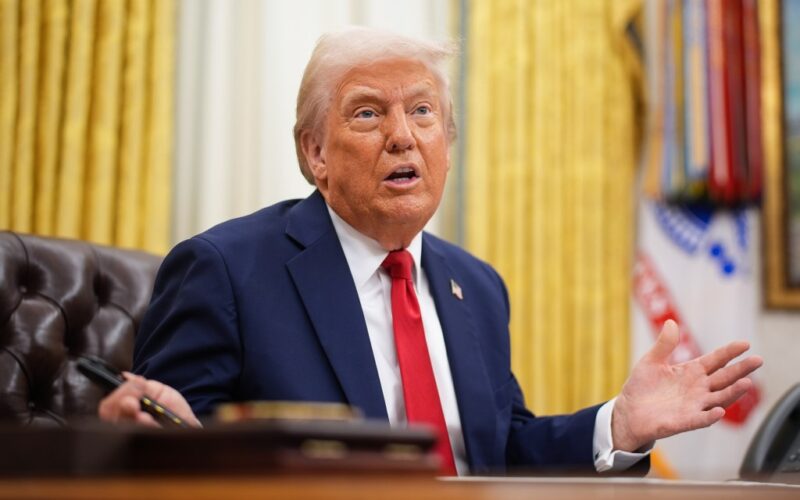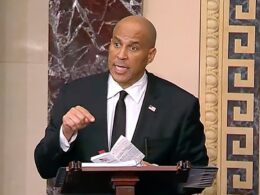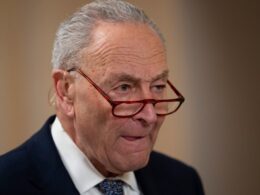President Trump sowed confusion Tuesday as he continued to threaten hefty tariffs on imported goods even as White House advisers admitted they don’t know the details.
With what Trump has branded “Liberation Day” looming, the Republican president still had not released details of the potentially extensive new taxes on foriegn-made goods, or explained what trading partners or manufacturers could do to avert them.
The uncertainty continued to roil financial markets although Wall Street bounced back strongly on hopes the trade war measures might not be as harsh as many fear.
After several weeks of saber-rattling, Trump has already slapped 25% tariffs on imported cars and car parts in a move he says will encourage domestic automobile production. Critics say the tariffs will backfire on all carmakers and consumers.
Trump injected more uncertainty in the market by saying over the weekend that he “couldn’t care less” if American consumers wind up paying more for cars.
Trump has vowed Wednesday to unveil “reciprocal” tariffs of perhaps 20% to match the duties that other countries charge on U.S. products. But officials have refused to clarify his threats and Trump himself has avoided giving specifics, leading panicked foreign governments and industries to lobby for exemptions.
Trump has argued that tariffs protect U.S. manufacturing from unfair foreign competition and raise money for the federal government. He also uses them as leverage to demand other economic and even political concessions from other countries.
But most economists say Trump’s planned blanket tariffs will likely backfire. For one thing, trading partners are likely to fight back by raising taxes on American-made goods, especially food and farm products.
European Union leaders led a chorus of world leaders vowing to fight back if necessary.
“Europe has not started this confrontation. We do not necessarily want to retaliate, but if it is necessary, we have a strong plan to retaliate and we will use it,” European Commission President Ursula von der Leyen told EU lawmakers.
The commission, the EU’s executive branch, negotiates trade deals on behalf of the bloc’s 27 member countries and manages trade disputes on their behalf.
“Europe holds a lot of cards,” von der Leyen added.
Trump has given an ever-shifting series of rationales for the tariff plan, including threats to punish partners for noneconomic issues like failing to toe the line on American geopolitical goals and, in the case of Mexico and Canada, for supposedly failing to stem the tide of illegal drugs flowing into the U.S.
That mercurial strategy has made it difficult for trading partners to figure out what steps they could take to avert the punishing taxes.
Canada, for example, has said it was meeting Trump’s demands by agreeing to act far more aggressively to stop what Trump calls “massive” smuggling of fentanyl across the border.
Senate Democrats are seeking to force a vote to nullify the emergency declaration on fentanyl that underpins the tariffs on Canada, noting that just 1% of the drug seized at borders comes from Canada.
The measure is not expected to see the light of day in the GOP-controlled House of Representatives, but some Republican senators may break from Trump in a sign of political nervousness about his tariff policy.








